本文由 LATZ+PARTNER 授权mooool发表,欢迎转发,禁止以mooool编辑版本转载。
Thanks LATZ+PARTNER for authorizing the publication of the project on mooool. Text description provided by LATZ+PARTNER.
LATZ+PARTNER:该地堡位于巴伐利亚州北部小镇Mühldorf附近的一片森林中,它作为达豪集中营的第二大卫星营地,曾在二战快结束时,夺去了5000多人的生命。故此项目中代表了陆空运输、生产储存区、军队营地、囚犯营地和坟墓复杂系统的三个纪念地:森林营地、万人冢和军备地堡,都旨在纪念过去的劳役、幸存者及死去的囚犯。
LATZ+PARTNER:The bunker construction site in a forest near the small Upper Bavarian town of Mühldorf was the second largest satellite camp of the Dachau concentration camp and it claimed more than 5000 lives towards the end of World War II.The three memorial sites, Forest Camp, Mass Grave and Armament Bunker, represent a complex system of air and rail traffic, production and storage areas, construction site huts, prisoners’ camps and graves, which commemorate forced labour, survival and the death of prisoners.
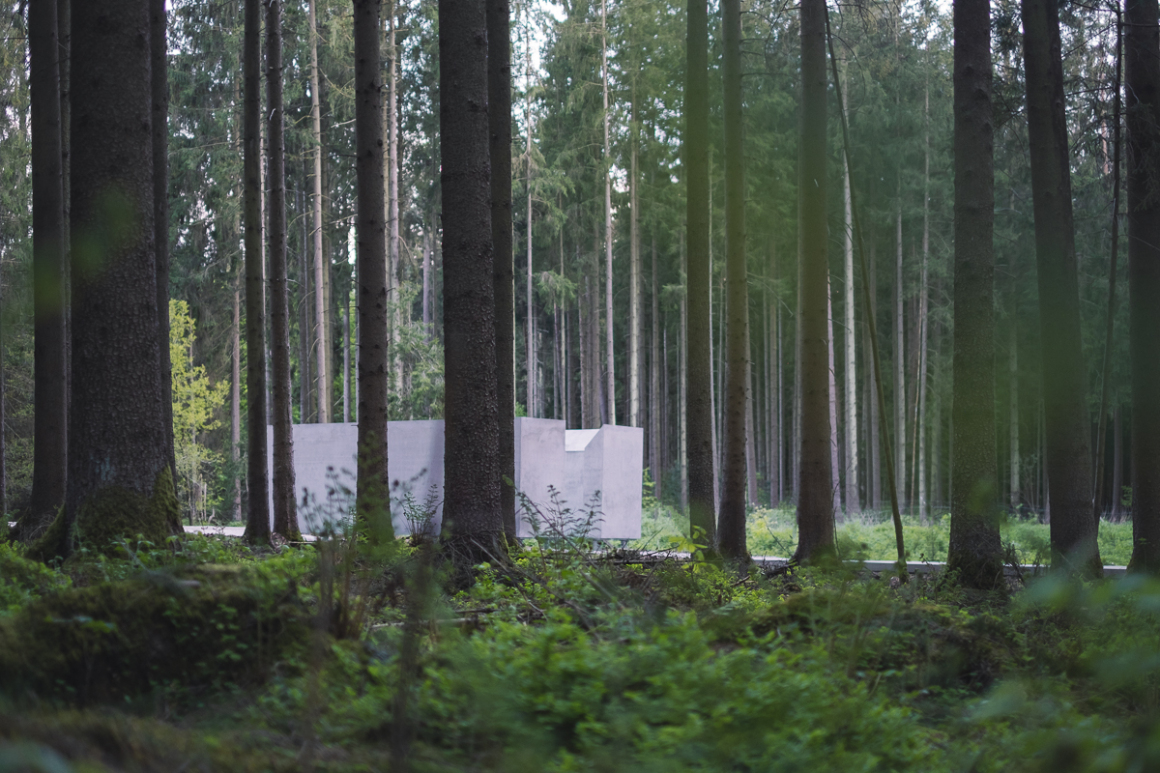
该地被盟军炸毁后,逐渐演变成了现在的森林,这就导致了人们很难在没有额外信息的帮助下了解该遗址。所以我们在现有的景观上叠加了一个新的抽象层,使原本令人费解的事物变得可以理解,帮助人们了解和记住过去。这其中的理解过程主要来自对所见之物的意识感知、简单的空间干预和少量的基本事实信息阐述。
The site was blown up by the Allies and gradually reclaimed by the forest, making its remains incomprehensible without the help of additional information for interpretation. By superimposing a new abstract layer over the existing landscape, the past is remembered and the inexplicable becomes comprehensible. The actual process of understanding is triggered by the conscious perception of what is seen, simple spatial interventions and only a minimum of essential factual information. The repetition of elements and information highlights the interchangeability of places in relation to their historical context.
▼纪念园总平面 Plan
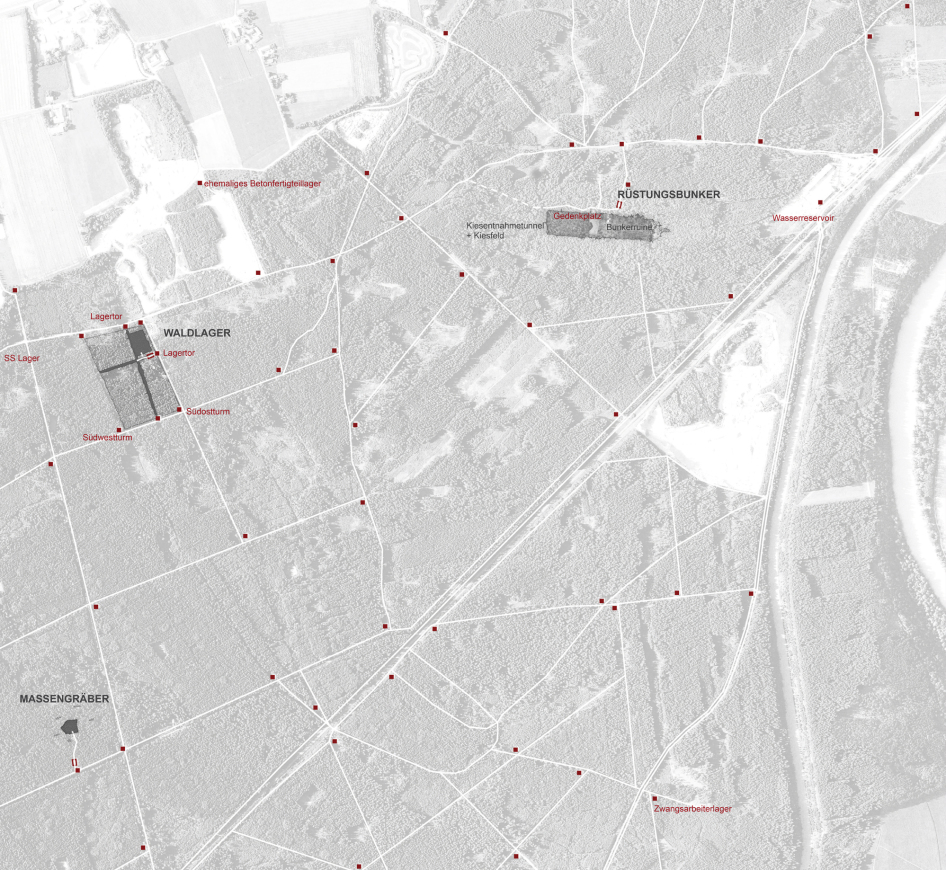
重复的元素和信息强调的是场地与其历史背景之间的可交替性。因此,新元素的加入并不是意味着重建,而是形式和材料极致要求的媒介。设计师特意使用了地堡建筑当地的特色材料:混凝土和钢材来制作指示牌。
Consequently, the new elements are not reconstructions. They are media with the highest demands on form and material. They deliberately use the characteristic materials of the bunker construction site: concrete and some steel in a few places for information signs.
▼运用当地特色材料的指示牌 The information signs using characteristic materials of the bunker construction site
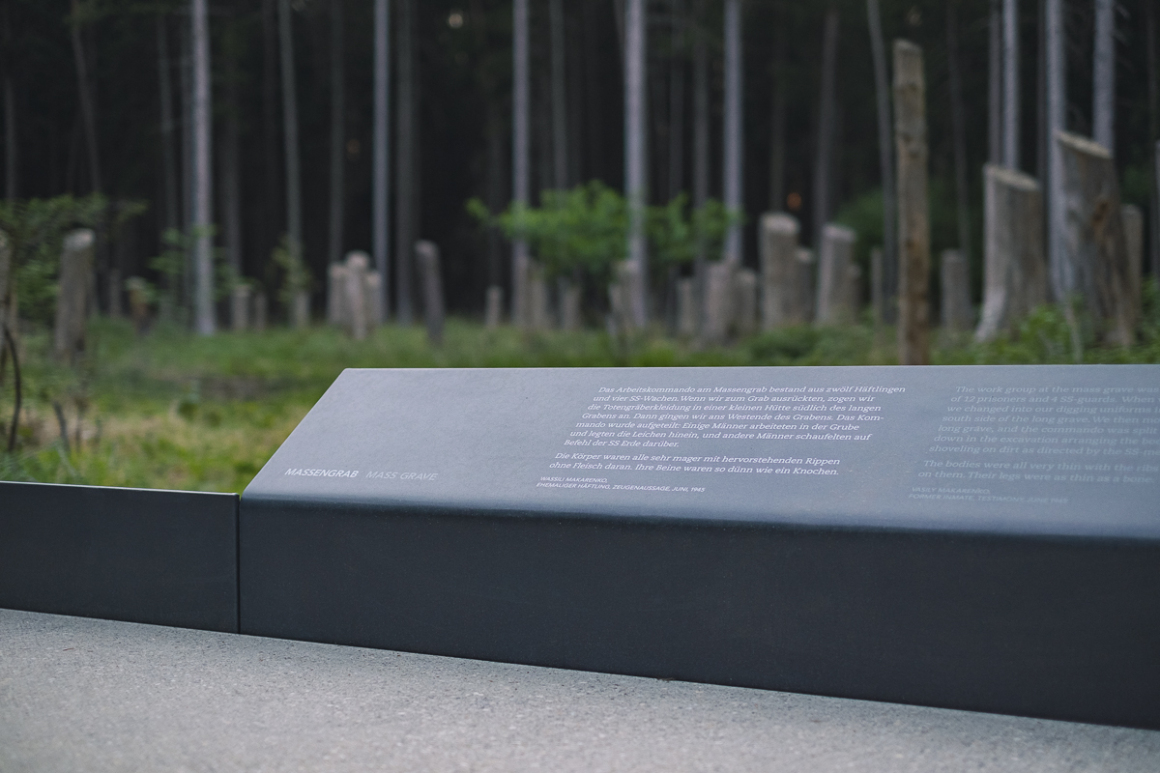
这三个纪念点作为整个纪念网络的一部分,都在以各自不同的方式讲述着同一个故事。园区内的纪念石雕,作为米尔道夫哈特网络系统的象征性标志,被放置在与历史和空间相关联的坐标点上。看似巧合随机地穿梭于纪念石雕之间的体验,提升了人们对于场所精神的认知。
All three memorial sites tell the same story in different ways and are part of an overall network. Memorial stones, as symbolic representations of the Mühldorfer Hart network, are placed at historically and spatially relevant points. To come across them seems to be coincidental and yet raises awareness of the place and its context.
▼放置于园区的纪念石雕 The memorial stone placed in the park
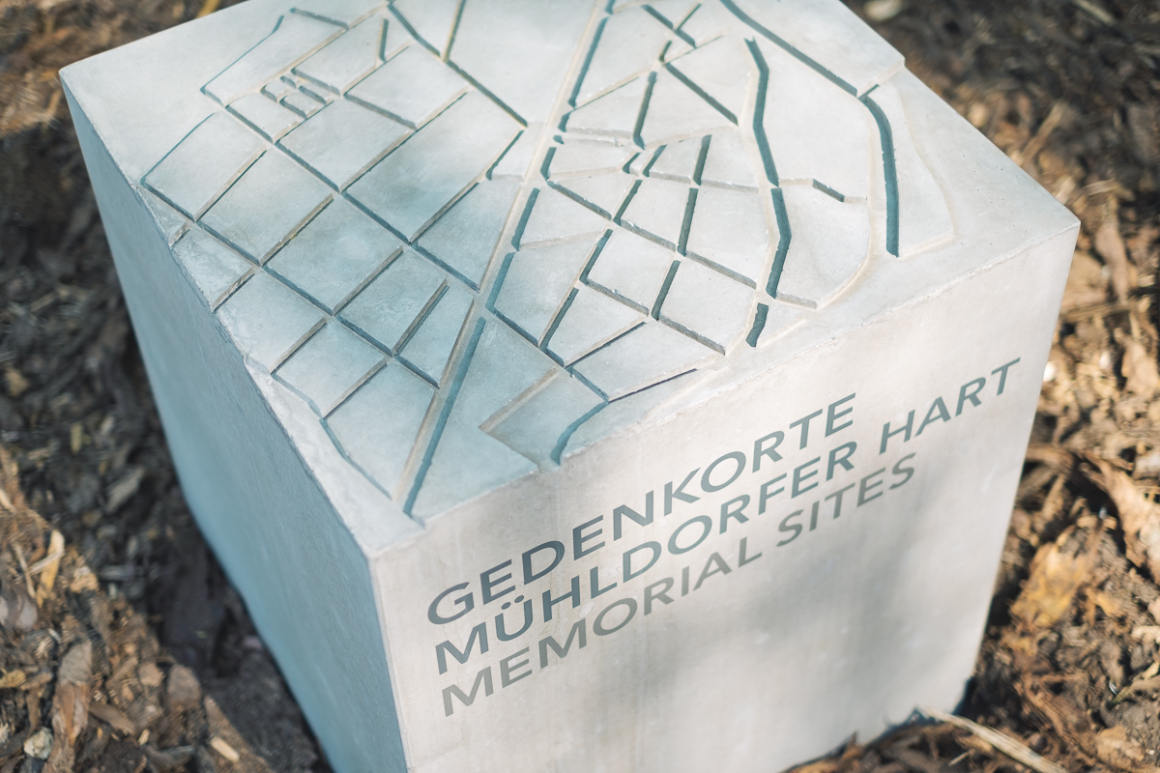
道路和连接处、空地和带状区域的空间干预,有助于人们理解以前的空间结构和尺寸。这三个纪念点都有一个相同的围合信息空间,其中的图像和文字向游客展示了整个Mühldorfer Hart地图及其所在的位置。游客在经过这一部分的准备后,穿过由两个U形混凝土单元组成的“十字转门”,便到达了一个新的空间,即真正的纪念地。
Spatial interventions such as paths and junctions, clearings and swathes help to fathom the former structure and dimensions. Each of the three memorial sites is preceded by the same introverted information space, which uses images and texts to inform about the entire Mühldorfer Hart site and that particular spot. Thus prepared, visitors pass a “turnstile”, consisting of two U-shaped concrete units, and are discharged to a new level, the actual memorial site.
▼每个纪念点前都设有一个围合的信息空间 Each memorial sites has a introverted information space

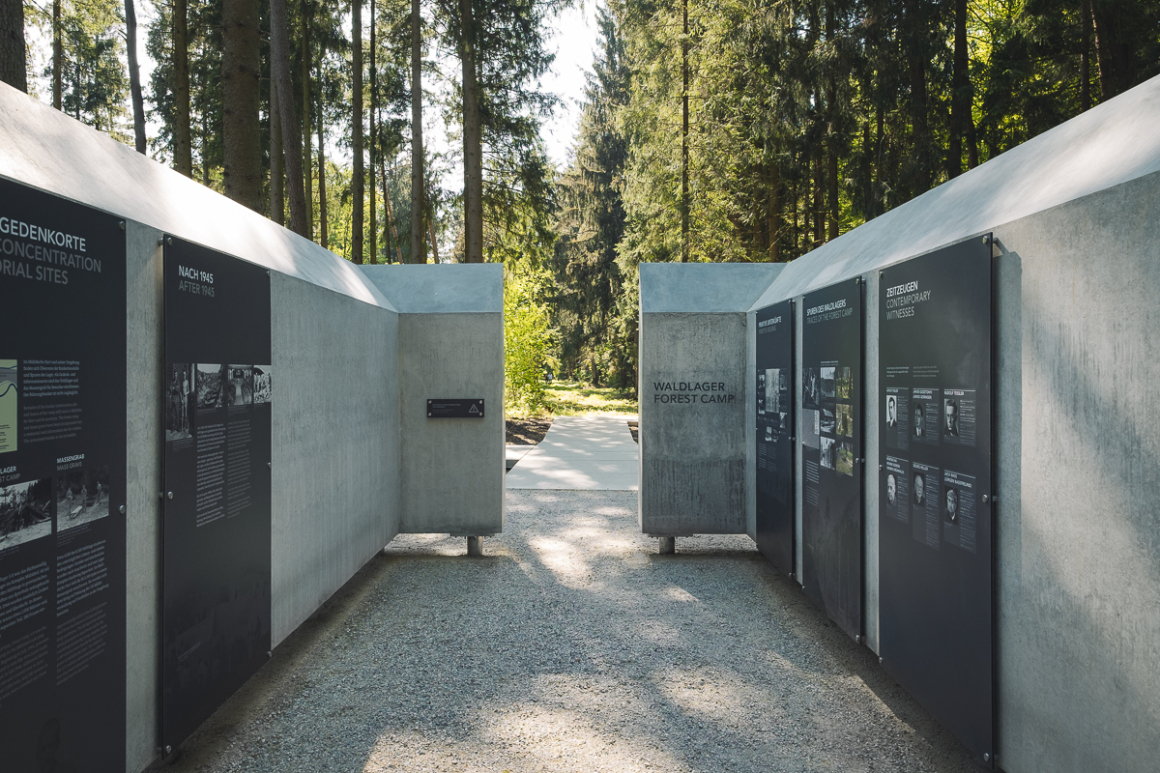
森林中所构建的新路径也是理解过程的一部分。它们与现有的场地元素相呼应,根据散落的遗迹变幻不同的宽度,方便游客记忆。最开始在起点处的森林路径表面是较柔软的,而在十字转门之外,它们就变成了由定制混凝土单元构成的,通往纪念场地的叙事路径,略微高于森林地面。路面上横向安装的钢带上还刻有当代目击者的纪念语录,正是这些目击者们记住了这些历史上的重要地方和事件。
The constructed paths are part of the process of understanding. They respond to existing site elements, vary in width, adapt and lead to scattered relics in order to facilitate remembrance. Their surface is soft at the start near the forest road, while beyond the turnstile they turn into narrative paths that lead to the memorial site and are made of bespoke concrete units that are slightly raised above the forest floor. Laterally mounted steel bands carry commemorative quotations from contemporary witnesses that remember historically important places and events.
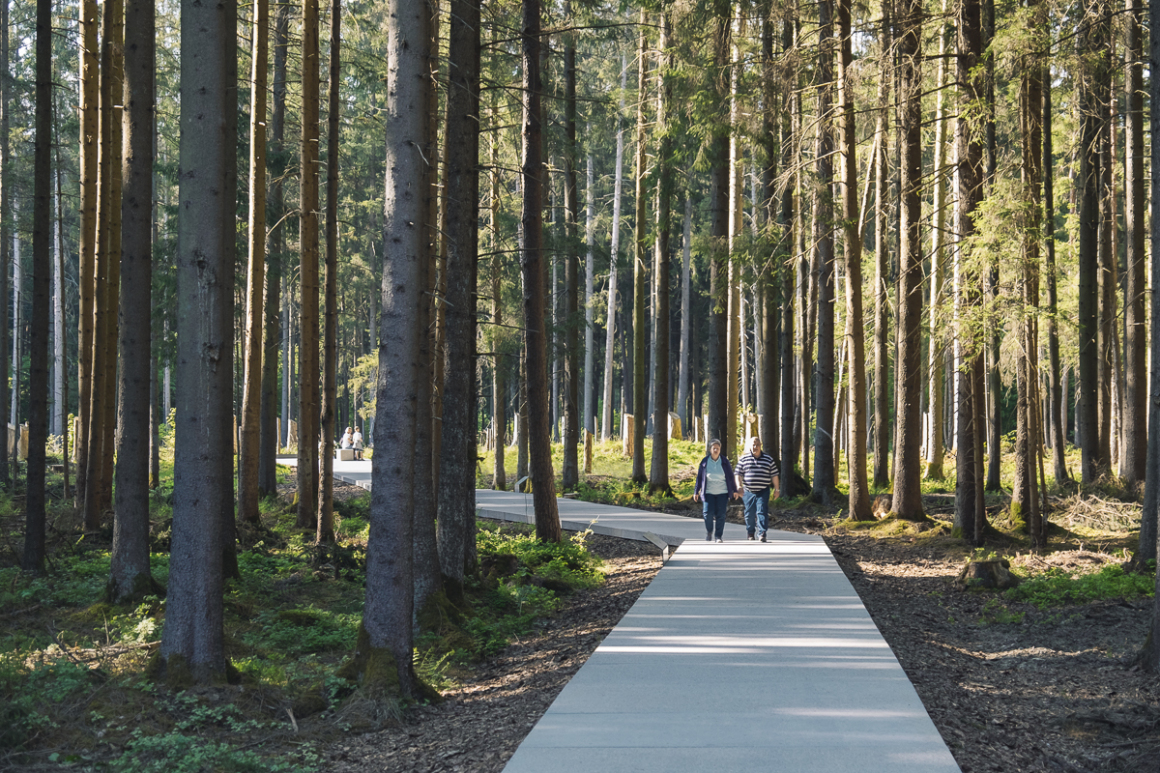
六号森林营地纪念点是囚犯生活条件最不人道的几个营地之一。我们通过移除植被,突出了场地主要轴线、边界以及冬季营地的土屋,并划定了营地范围。纪念石雕标志着以前的瞭望塔和大门。这条路从旧营地大门附近的围合信息空间开始,沿着以前的主轴线,然后转向南边的土屋和厕所,最后向北转到以前的点名场。树干上的白色标记划定的是现已杂草丛生的点名场的范围。
The Forest Camp VI Memorial Site serves as an example of several camps where prisoners lived under the most inhumane conditions. By removing vegetation, the main axes and boundaries as well as the earth huts at the winter camp are revealed and give an idea of the camp’s extent. Memorial stones mark the spots of former watchtowers and gates. The path starts at the information room near the old camp gate, runs first along the former main axis, then veers off to the south towards the earth huts and latrines, and turns north to the former roll call ground. White markings on the tree trunks demarcate the extent of the now overgrown roll call ground.
▼六号森林营地纪念点移除植被后,突出了场地轴线及边界 The Forest Camp VI memorial site highlights the main axis and boundaries by removing vegetation
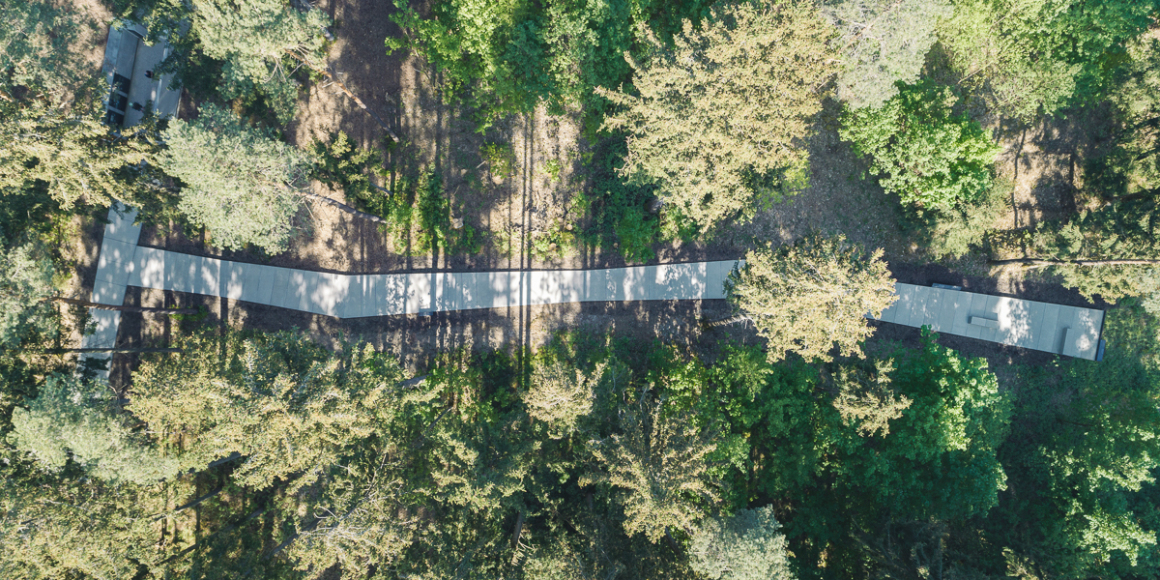
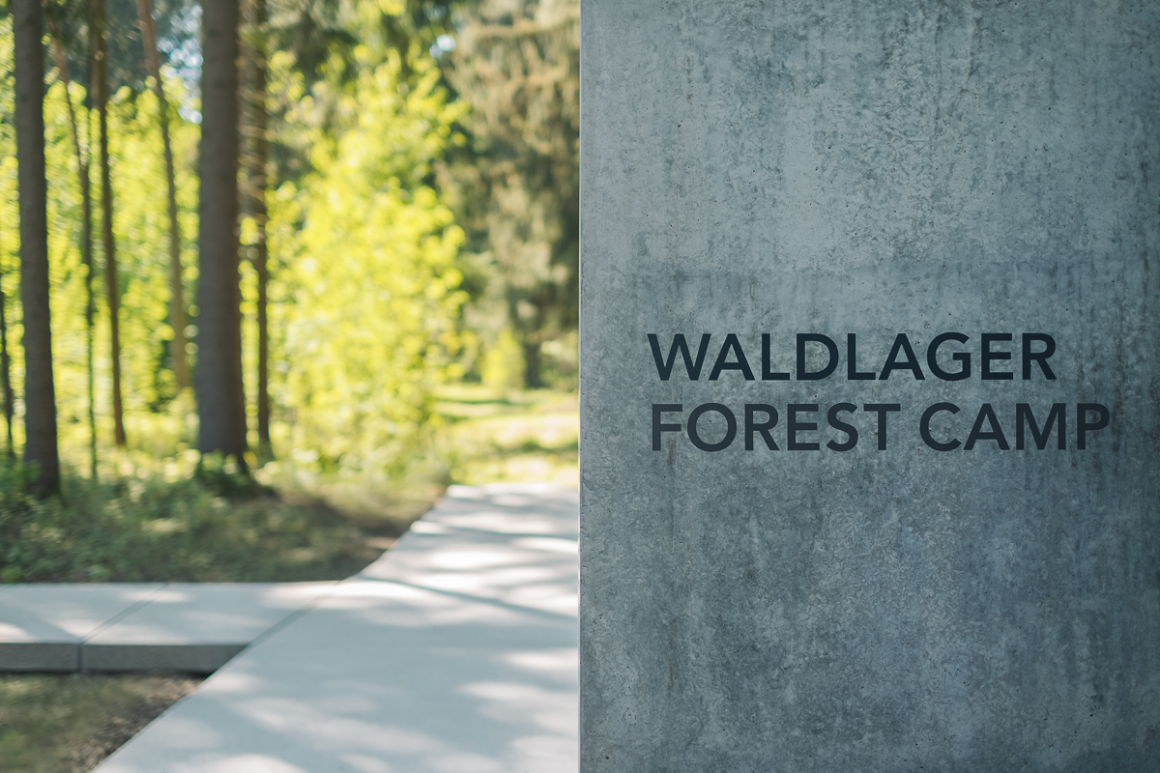
▼树干上的白色标记划定的是以前的点名场的范围 White markings on the tree trunks demarcate the extent of the roll call ground
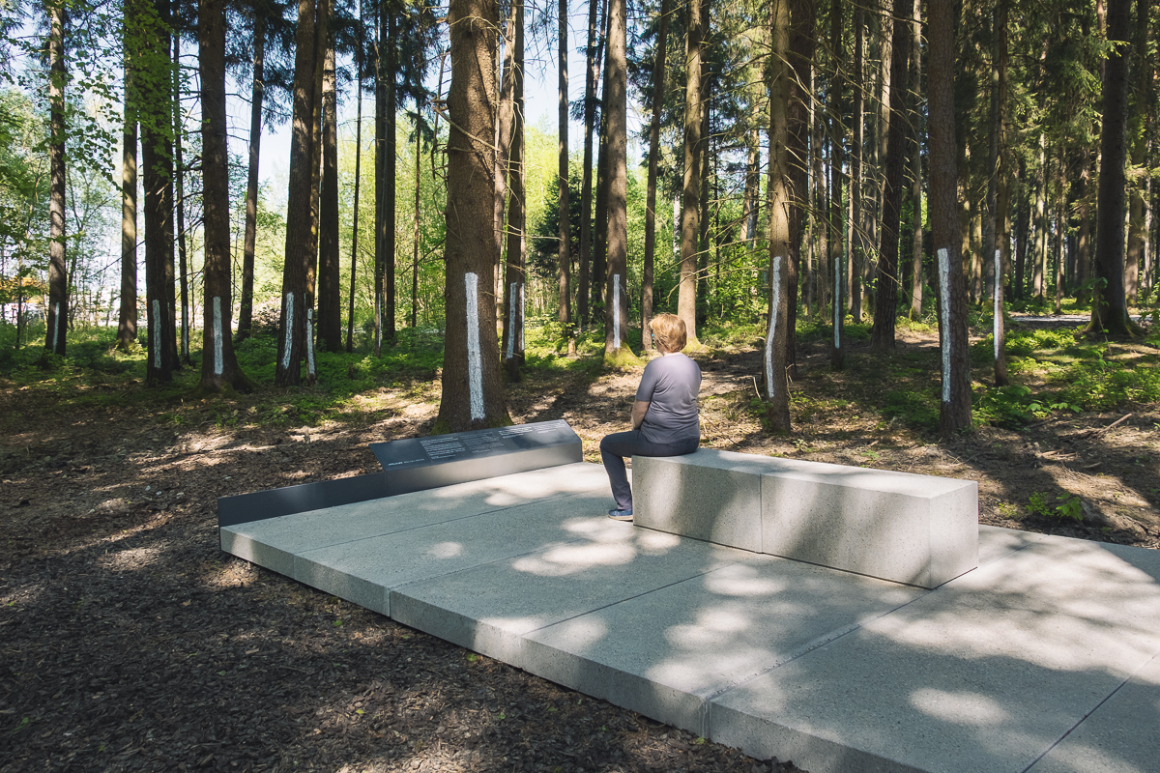
万人冢纪念地包含两个仍可辨认的万人冢。虽然它现在只是森林里的一片静地,但代表的却是无数被任意掩埋的尸体——这是一个难以表达的维度。我们用一片被砍掉树干的空地揭开了这个地方的神秘面纱,给游客们呈现出了一幅意想不到、令人震惊的画面:一个个1.7米高的树桩代表着受害者们以及从前疯狂的犯罪系统。
The Mass Grave Memorial Site comprises two of a few still discernible mass graves. It now lies peacefully within a forest and yet stands for countless bodies that were buried indiscriminately – a dimension that is difficult to convey. A clearing with lopped off tree trunks demystifies the place, confronting visitors with an unexpected, shocking picture: the 1.7-metre-high tree stumps represent the victims and the madness of a criminal system.
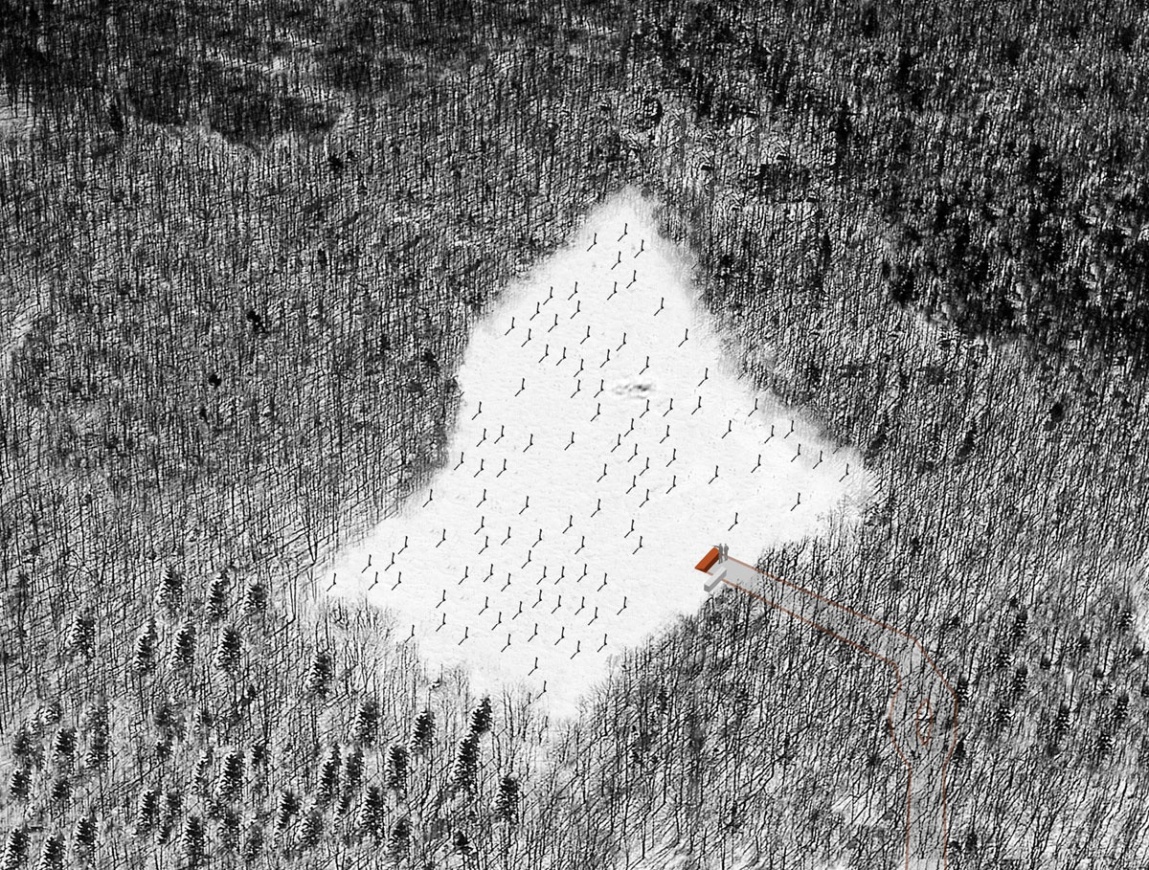

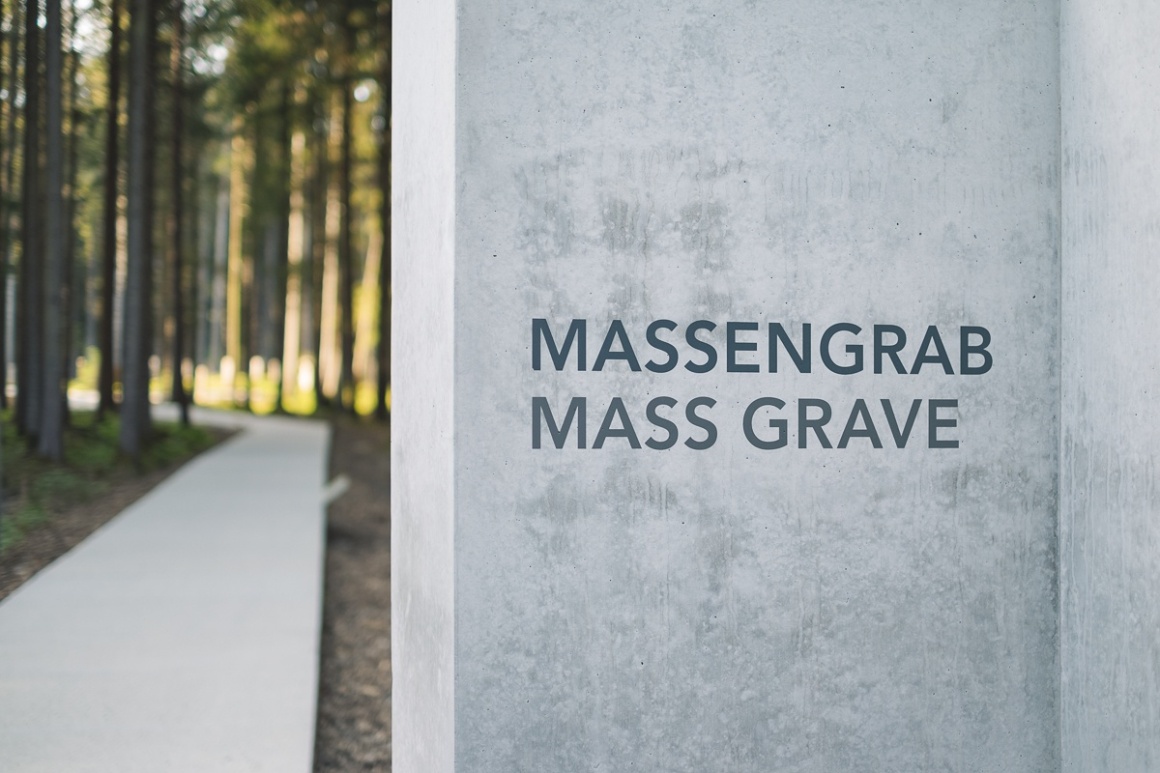
▼万人冢纪念地以树桩纪念受害者 The Mass Grave Memorial Site represent victims by tree stumps
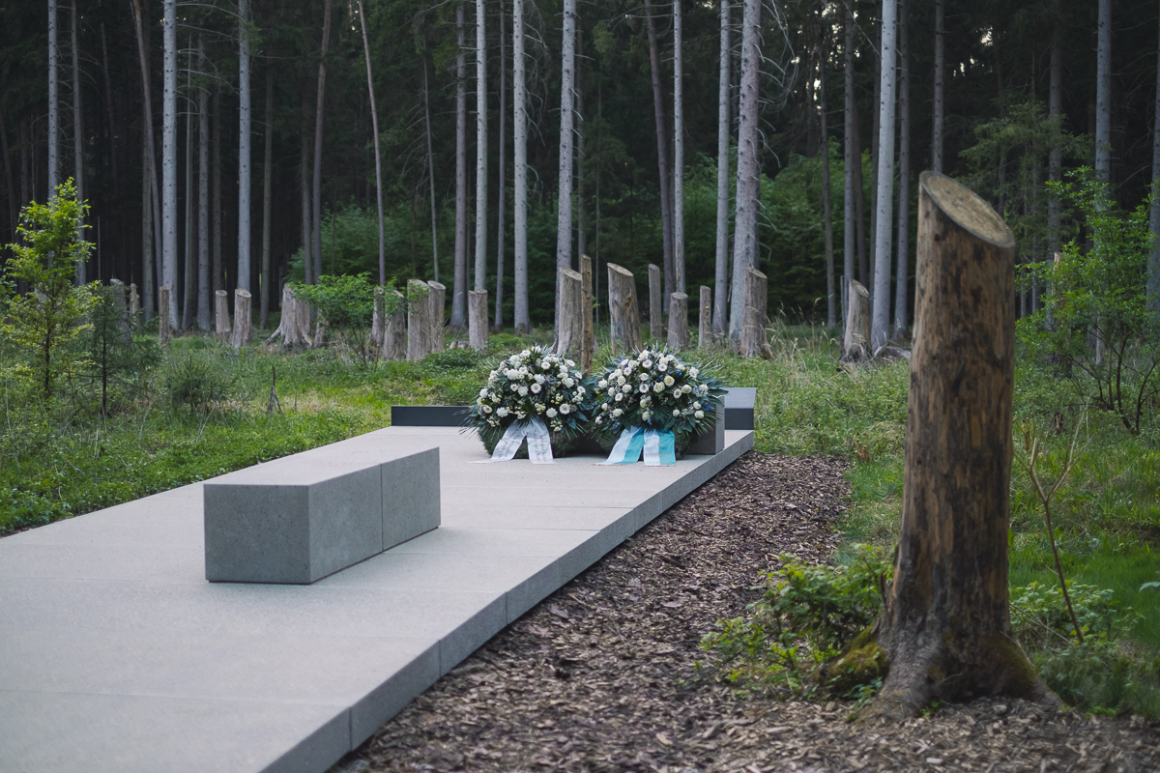
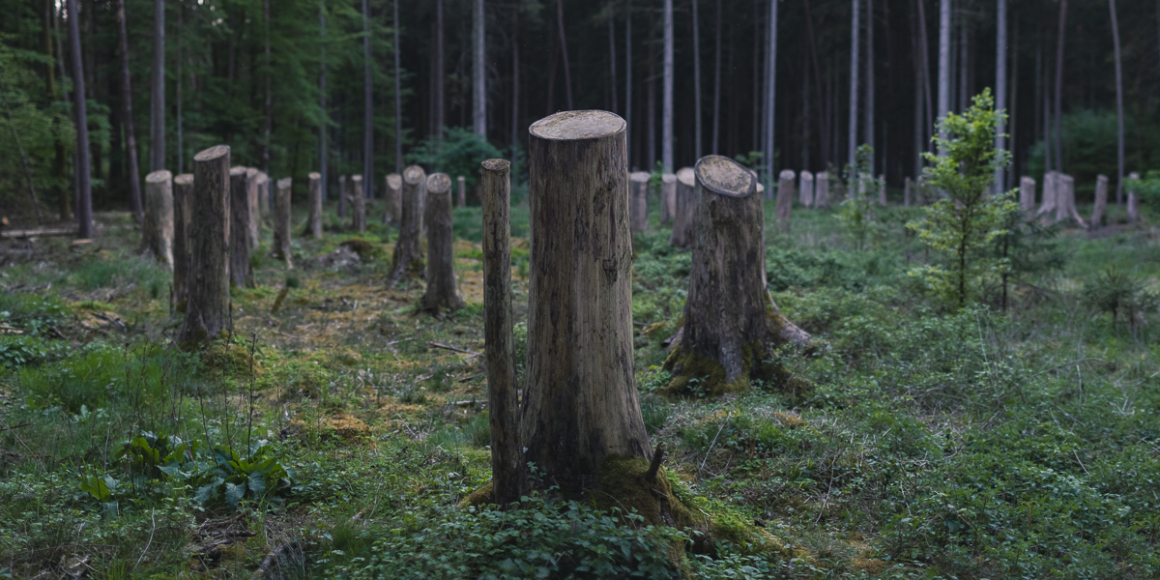
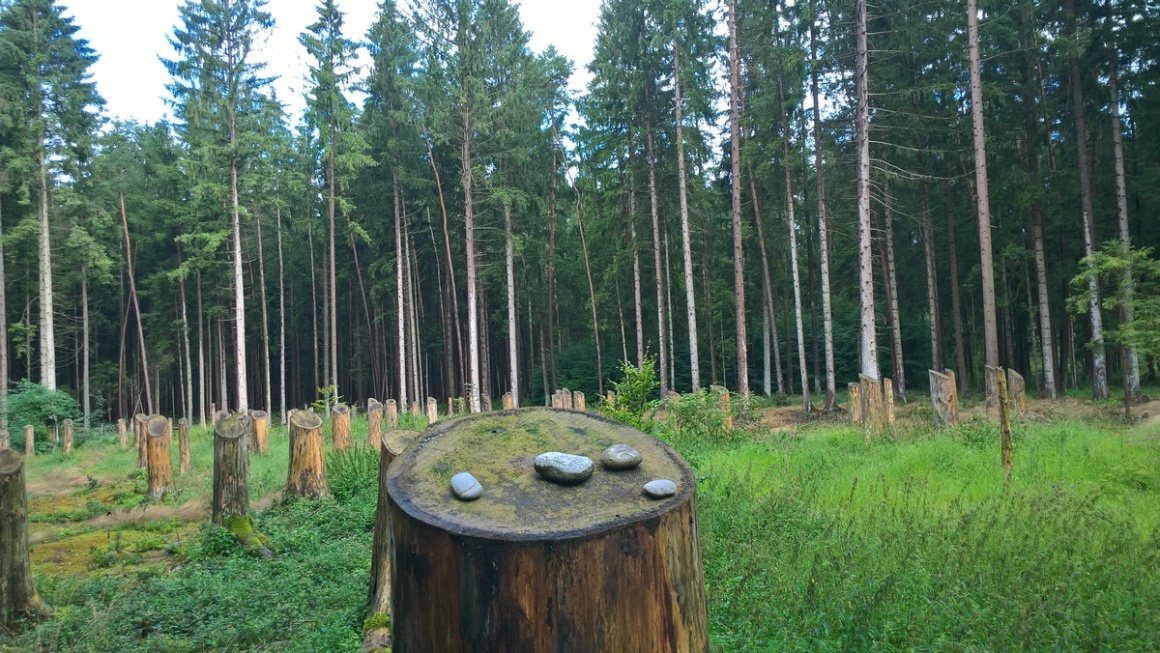
军备地堡纪念遗址尚未建成。那次爆炸后依然矗立着的第七个碉堡拱门,是Mühldorfer Hart最引人注目的遗迹,因此我们将在第五拱门的废墟上修建一条钢栈道,以便人们全面了解被毁现场的情况:原计划中的兵工厂中心——以及强迫劳役和大规模死亡的原因。
The Armament Bunker Memorial Site has not yet been completed. The seventh bunker arch, which is still standing after it was blasted, is the most striking relic at Mühldorfer Hart. A steel walkway will be constructed on the remains of the fifth arch to provide an overview of the extent of the scene of devastation: the former centre of a planned arms factory – and the reason for forced labour and mass death.
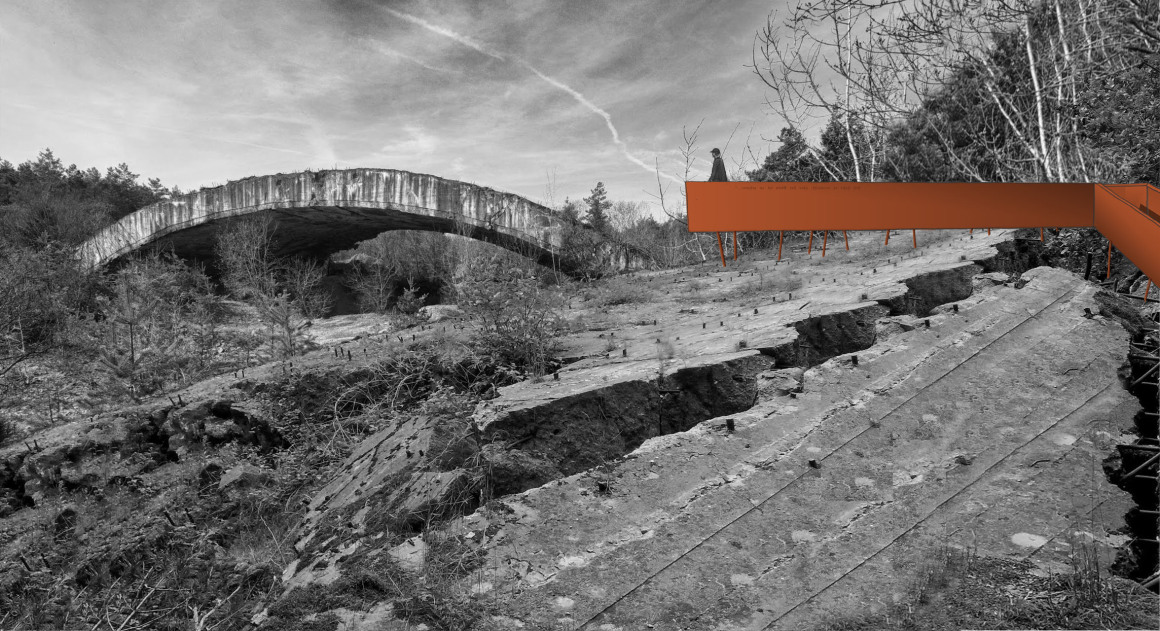
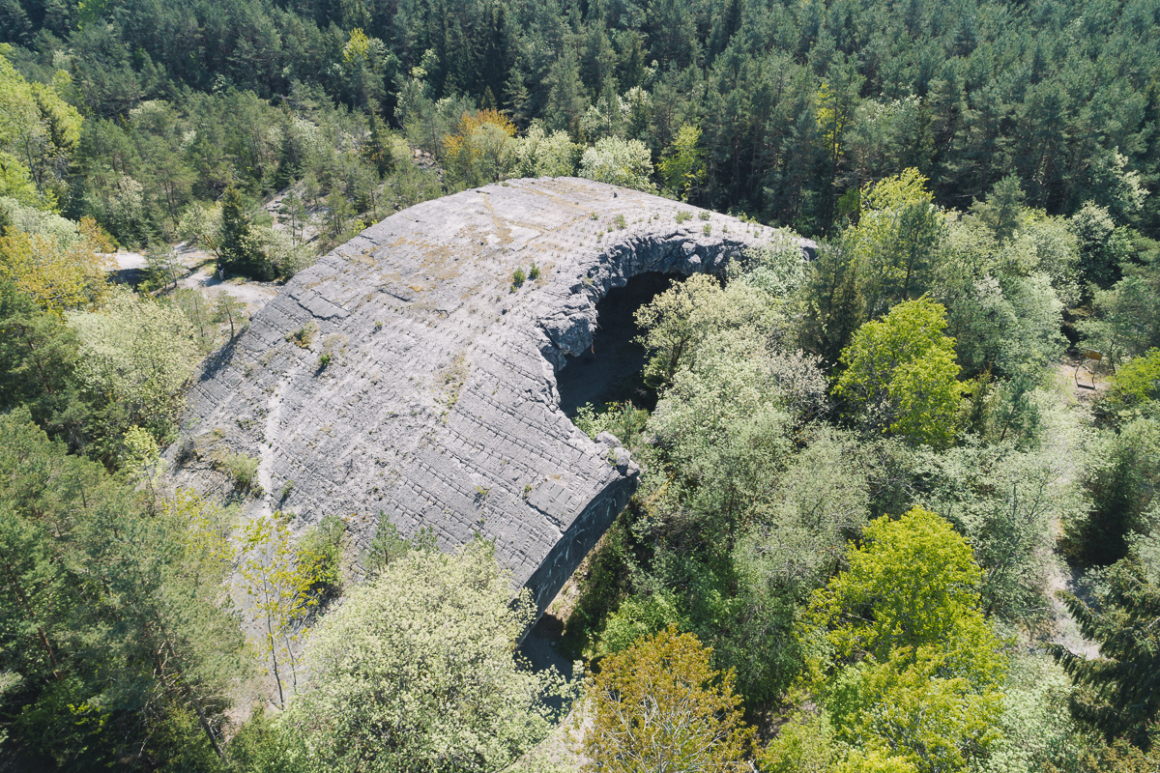
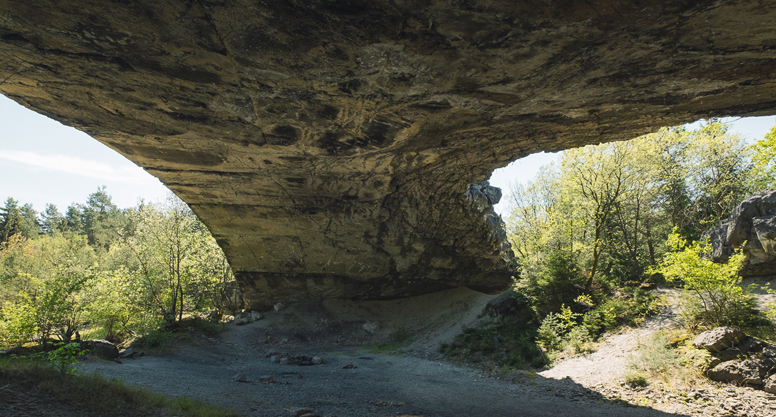
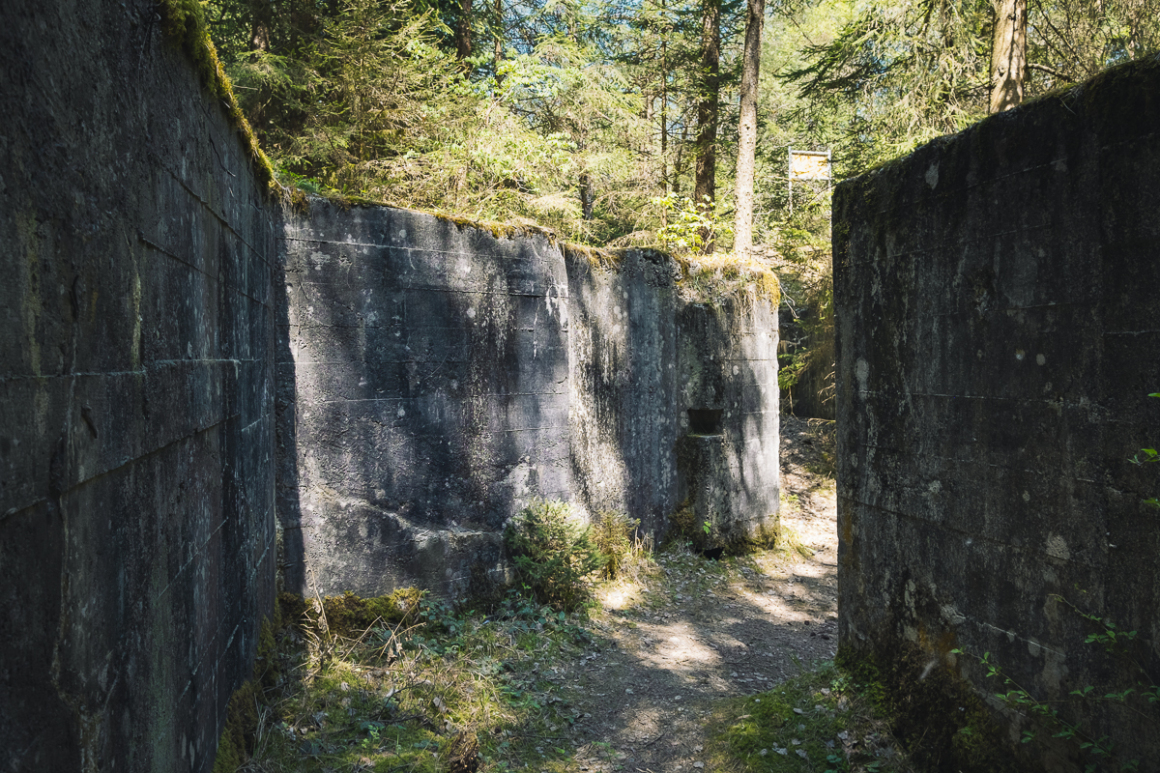
项目名称:米尔道夫哈特纪念园
完成年份:2013-2018
项目面积:100公顷
项目地点: 德国米尔道夫哈特
设计公司名称:拉茨与合伙人景观规划事务所
公司网址:https://www.latzundpartner.de/en/
联系邮箱:post@latzundpartner.de
主创设计师:Tilman Latz
设计团队:Michael Stegmeier, Daniela Strasinsky
客户/开发商:Stiftung Bayerische Gedenkstätten, Staatliches Bauamt Rosenheim
合作方:Zankl&Francke
图片:Nikolai Benner,LATZ+PARTNER
Project Name: Mühldorfer Hart Memorial Sites
Completion Year:2013-2018
Project Area:100 hectares
Project Location:Mildorfhart, Germany
Architect Firm:latzundpartner
Website:https://www.latzundpartner.de/en/
Contact e-mail:post@latzundpartner.de
Lead Designer:Tilman Latz
Design Team:Michael Stegmeier, Daniela Strasinsky
Clients:Stiftung Bayerische Gedenkstätten, Staatliches Bauamt Rosenheim
Collaborators:Zankl&Francke
Photo Credits:Nikolai Benner,LATZ+PARTNER
更多 Read more about: LATZ+PARTNER






这个做的真好,在保留遗迹现状条件的情况下以最小干预融入设计,不浮夸、不刻意,却在很多细节上将历史的画面展现在游人面前